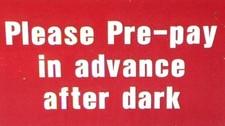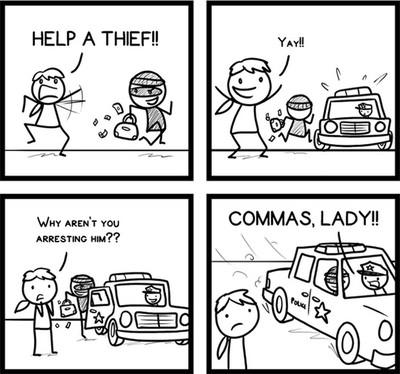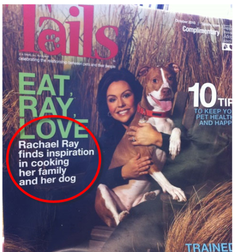Grammar Wall
Whether you are looking for a specific answer to a grammar question or brushing up on your grammar knowledge, these sites will be very helpful.
The Purdue Online Writing Lab
My number one choice. Still about the best site for full coverage in a well-organized presentation.
GrammarBook.com
Simple questions and answers.
English Grammar Rules & Usage
Scroll the list of questions and parts of grammar and select. Helpful and easy-to-use.
The Case of Who vs Whom by Philip B. Corbett
"Use who in the sense of he, she or they:
Pat L. Milori, who was appointed to fill the vacancy, resigned. (He was appointed.)
Use whom in the sense of him, her or them:
Pat L. Milori, whom the board recommended, finally got the job. (The board recommended him.)
Is the grammar in this sentence correct?
"Mr. Colbert’s “Late Show” office once belonged to David Letterman, who Mr. Colbert called one of his comedic idols."*
"Mr. Colbert called “him” — not “he” — one of his idols. So “whom” is correct, not “who.”
The same test applies to [the words] whoever and whomever:
Whoever wins will collect $64. (He or she wins.)
Whomever you ask will provide directions. (You ask her or him.)"
*Corbett, Philip B. "Grammar, Usage and Style - After Deadline Blog - The New York Times."
Web log post. Grammar, Usage and Style - After Deadline Blog - The New York Times.
The New York Times Co., 29 Sept. 2015. Web. 27 Oct. 2015. nytimes.com/>.
What's wrong with this picture?

Answer: This is a two-fer.
If your apostrophe drops, it becomes a comma which certainly is not needed here. In fact, if the apostrophe didn't drop, the apostrophe wouldn't be needed here. An apostrophe would indicate that something belongs to business. Definitely doesn't work. Business needs to be pluralized which gives us businesses.
The sign should read: Businesses open as usual.
Nichols, Sharon Eliza. I Judge You When You Use Poor Grammar: A Collection of Egregious Errors, Disconcerting Bloopers,
and Other Linguistic Slip-ups. New York: St. Martin's Griffin, 2009. Print.
Using apostrophes to indicate possession
Singular and the plural of a word that does not end in s,apostrophe is placed before the s.
Mike owns a car. - Mike's car
Sarah has a puppy. - Sarah's puppy
The children have toys. - children's toys
Plural word ending in s, apostrophe is placed after the s.
Lots of kids have toys. - kids' toys
The houses all have walkways. - houses' walkways
What's wrong with this sign?

Answer at the bottom of the screen
Answer: Doesn't pre-paying mean that you pay in advance? Yes, it does. So "in advance" is redundant and unnecessary.
Nichols, Sharon Eliza. I Judge You When You Use Poor Grammar: A Collection of Egregious Errors, Disconcerting Bloopers,
and Other Linguistic Slip-ups. New York: St. Martin's Griffin, 2009. Print.

Really?
What's wrong with this sign?
Grammar Wall
Figure of Speech and Simile and Metaphor
"A figure of speech is a form of expression (as a simile or metaphor) used to convey meaning or heighten effect"
simile - a figure of speech comparing two unlike things using like or as
Ex. He is as strong as an ox.
metaphor - a figure of speech comparing two unlike things without using like or as
Ex. You are my sunshine.
“She's as fierce as a tiger” is a simile, but “She's a tiger when she's angry” is a metaphor.
Merriam-Webster. Merriam-Webster, Incorporated, 2015. Web. 03 Dec. 2015.

http://www.boredpanda.com/funny-grammar-jokes-police-nerds/
What's an intransitive verb?1
An intransitive verb has two characteristics. First, it is an action verb, expressing a doable activity like arrive, go, lie, sneeze, sit, die, etc. Second, unlike a transitive verb, it will not have a direct object receiving the action. Here are some examples of intransitive verbs:
Huffing and puffing, we arrived at the classroom door with only seven seconds to spare.
Arrived = intransitive verb.
James went to the campus cafe for a steaming bowl of squid eyeball stew.
Went = intransitive verb.
Around fresh ground pepper, Sheryl sneezes with violence.
Sneezes = intransitive verb.
Some verbs, such as arrive, go, lie, sneeze, sit, and die, are always intransitive; it is impossible for a direct object to follow. Other action verbs, however, can be transitive or intransitive, depending on what follows in the sentence.

Because of blood sugar problems, Rosa always eats before leaving for school.
Eats = intransitive verb.
If there is no leftover pizza, Rosa usually eats whole-grain cereal.

Eats = transitive verb; cereal = direct object.
1Simmons, Robin L. "The Intransitive Verb." Grammar Bytes! ::. Robin L. Simmons, 2015. Web. 10 Dec. 2015.
Commas and placement
"Lack—or overuse—of punctuation (especially commas) can alter meaning and/or result in ambiguity.
Ambiguous sentences are hard to understand and can be misinterpreted, thus potentially putting lives at risk.

"She cooks her family and her dog (yes, the dog
looks worried!)??? I think they meant “…finds inspiration in cooking, her family, and her dog.”
Another example:
Let's eat Grandpa.
Let's eat, Grandpa.
Correct punctuation can save a person's life."
CyberText Newsletter
https://cybertext.wordpress.com/2012/11/22/a-light-hearted-look-at-how-punctuation-can-change-meaning/
Grammar Wall - Homonyms
Homonyms are two or more words that have
the same sound or spelling but differ in meaning.
Examples: two, to, too
two - is a number.
to - is part of an infinitive (to run, to read) or shows
direction
too - excessive or also
"'Mine is a long and sad tale!' said the Mouse, turning to Alice, and sighing.
"'It is a long tail, certainly,' said Alice, looking down with wonder at the Mouse's tail; 'but
why do you call it sad?'"
(Lewis Carroll, Alice's Adventures in Wonderland)
"Your children need your presence more than your presents."
(Jesse Jackson)
Three Kinds of Homonyms
"There are three kinds [of homonyms]: those that sound and look alike (bank a slope, bank a place for money, and bank a bench or row of switches); homophones, that sound alike but do not look alike (coarse, course); and homographs, that look alike but do not sound alike (the verb lead, the metal lead). . . . ."
(Tom McArthur, Oxford Companion to the English Language. Oxford University Press, 1992)
Nordquist, Richard. "What Are Homonyms?" About.com Education. About Education, 24 Oct. 2015. Web. 22 Feb. 2016.
- EResources
- Ebooks
- Contests and Opportunities
- Faculty Resources
- Library Good Reads
- GradPoint (opens in new window)
- LibGuides
- NHS Library Seminars (opens in new window)
-
Historical Links
- Immigrant Groups in the West
- Immigrant Groups in the West Making the Connections
- Immigration Symbols
- Immigration West
- Industrial Revolution Resources List
- Industrialists
- Korean War
- Legacy of Jim Crow
- The 60's
- Women and the Industrial Revolution
- Working Women and the Industrial Revolution
- Working Women During the Industrial Revolution
- Against Slavery
- Immigration
- Louis Braille An Exceptional Man
- MLA and APA Style Guides
- Norwood High School Home
- Quick reference
- Research & Instruction
- Summer Work
- Textbooks
This site provides information using PDF, visit this link to download the Adobe Acrobat Reader DC software.
